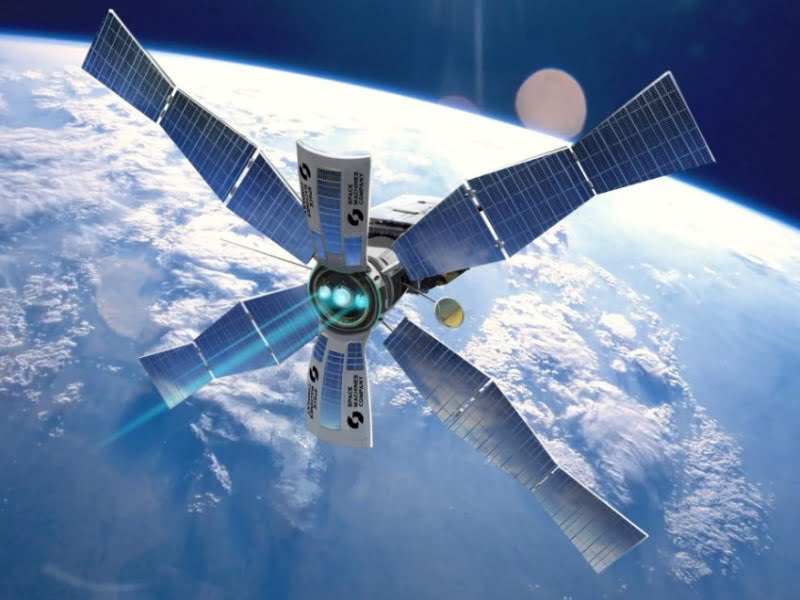Three Australian space companies will unite to launch a bushfire detection satellite into orbit in a major milestone for building sovereignty capability in the local space sector.
In-space transportation provider Space Machines Company has signed a deal with Fireball.International to launch a bushfire detection satellite into final orbit next year. The South Australian startup last year announced a launch agreement with Gilmour Space Technologies to send its orbital transport Optimus-1 into space in March 2022.
This rocket will now carry the fire detection satellite, which will provide automated bushfire detection and tracking.

Fireball.International can detect a bushfire within minutes by analysing images from satellites and sensors in real-time, and sends notifications and maps to emergency responders when it does detect a fire.
A report by the Australian National University last year found that the detection of bushfires within 30 minutes could lead to a total benefit of $8.2 billion.
The announcement is a significant development for the local space sector and a demonstration of what’s possible for Australian companies, Fireball.International chief executive Christopher Tylor said.
“This is an Australian-built taxi, which will bring an Australian-built satellite which looks for fires and has national interest, which is launched by an Australian-built rocket and from an Australian spaceport in Queensland. This story is amazing,” Mr Tylor told InnovationAus.
The federal government has been urged to pursue greater sovereign capability in space, and this is a key aim of the Australian Space Agency.
The launch next year will showcase the potential of the local sector, Space Machines Company chief executive Rajat Kulshrestha said.
“It’s a pretty big milestone. The ability for us to have a satellite which addresses a key national interest issue, going on top of a space transportation platform, on top of an Australian-built and launched rocket shows our space industry to a global market,” Mr Kulshrestha told InnovationAus.
“Success will mean that some of the targets the government has for growing this industry are well on their way. All this capability will eventually help support Australian companies for years to come.”
In September last year Space Machines Company inked the deal with Gilmour to become a customer on its first Eris rocket launch next year, with the startup to launch a 35kg spacecraft to orbit. This will be the largest payload sent into orbit by an Australian company to date.
Having local launch companies and space taxis allows for the specific deployment and positioning of satellites at a cheaper price, Mr Tylor said.
“With this technology we can be delivered into orbit where we want to be, and where we need to be. The problem with launching something there is it is very expensive,” he said.
“With the technology Space Machines Company can offer us, the price of launching a satellite comes down. That is a big advantage”
Fireball.International currently relies on Japanese satellites launched by the Japan Space Agency to monitor bushfires in Australia.
The ability to launch satellites locally will be pivotal for the development of the Australian space sector, Mr Kulshrestha said.
“The ability for Australia to have responsiveness to put satellites into exactly the right place and especially satellite capabilities of national interest, is a key part of the sovereign capability we need to develop,” he said.
A government inquiry into the development of the space sector has heard concerns that the federal government’s plans to charge companies to apply for a launch permit will jeopardise the growth of the sector, which is hoping to launch up to 2500 satellites in the next five years.
Late last year independent senator Rex Patrick said the space sector is at risk of “shutting down before it starts”, with no launch permits issued yet.
But Mr Tylor said the agency is still young, and the local industry needs to work with it to overcome initial issues.
“What the Australian Space Agency here has achieved in this short period of time is amazing. It’s young and we have to work with them and they are very open and helpful if you approach them,” he said.
“Support is needed to help the companies there to develop and produce products which are competing in an international market. Our fire satellites are an example of that. It may only cover Australia for now but when we have a full constellation we will cover the whole planet.”
Mr Kulshrestha said the company has been working directly with the space agency to iron out issues in applying for permits.
“There are a lot of problems to solve. Our approach has been to collaboratively work together with government and the agency to get the outcomes that Australia needs,” he said.
Do you know more? Contact James Riley via Email.

